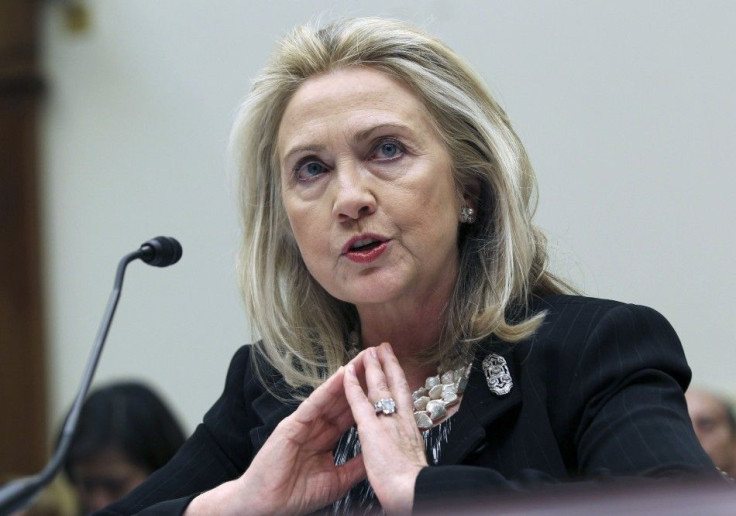Hillary Clinton’s Exasperated Anti-Israel Commentary Sparks Outrage

U.S. Secretary of State Hillary Clinton's commentary expressing doubts about the Israeli democratic setup, which came hot on the heels of two earlier instances of top U.S. officials suggesting Israel lacked dedication towards the Palestinian peace process, has sparked a an uproar in Israel and among American Jewish groups.
The U.S. ambassador to Belgium, Howard Gutman, first started the controversial dialogue, on Dec. 1, when he said Israeli-Palestinian conflicts were the root cause of the hostility of European Arabs and Muslims towards Jews, which had to be distinguished from traditional anti-Semitism.
The following day, the U.S. Secretary of Defense, Leon Panetta, added more fuel to the fire when he said that Israel needed to get to the damn table to negotiate with the Palestinians. He was addressing an audience at the Saban Forum, an annual Washington conclave for American and Israeli policymakers.
Clinton's comment, a day later, during the Q&A session at the end of a closed lecture last Saturday, also at the Saban Forum, only served to make matters worse.
What does Israel need to do in order to help the U.S. help it? asked an audience member of Clinton, at the end of her lecture on Iran's nuclear program and status of Israel-Palestine peace process. The Secretary of State did not hesitate in saying she was astonished by Israeli legislative measures that targeted the restriction of left-wing NGOs and the forced expulsion of women from the public sphere (she recalled having read a Washington Post report about the exclusion of Israeli women by Israeli Defense Forces). Her exasperation with the Israeli government was apparent in her body language; she sighed before breaking into a 3-minute long speech answering the question.
Clinton said she did not understand current affairs in Israel, adding that when the U.S. was working hard, with countries from around the world, to strengthen their civil sector organizations, Israel seemed to be moving in the opposite direction.
She further said that such undemocratic measures would make more sense in Iran rather than Israel and that these repressive tactics showed the country in a bad light.
The Israeli Prime Minister, Benjamin Netanyahu, didn't respond to Clinton's remarks.
However Israeli ministers criticized the comments, with Finance Minister Yuval Steinitz saying it was completely exaggerated.
The exclusion and segregation of women is something totally unacceptable, and it needs to be stopped, but to cite this as a threat to Israel's democracy is a big leap, Steinitz said, according to a Haaretz report.
Israel's oldest newspaper, Haaretz, published a commentary disapproving Clinton's statements, arguing that Israel isn't Iran, mainly because Israel is officially a democracy, unlike Iran.
In Iran, human rights organizations can receive assistance from a defined list of international organizations and institutions, 'with the approval of the relevant government ministers,' as Iranian law puts it. In Israel, proposed legislation would bar some organizations from receiving any money at all from foreign governments, while others would have to run the gauntlet of a Knesset hearing to get an exemption from, or at least a reduction on, the 45 percent tax, the article said.
However, the article seemed to admit the existence of unfair discrimination against women but tried to justify it with a play of words: Iran officially and openly separates unmarried men and women in public venues. In Israel, such segregation is against the law, but in practice, it is alive and well and sneering at the law.
© Copyright IBTimes 2024. All rights reserved.












